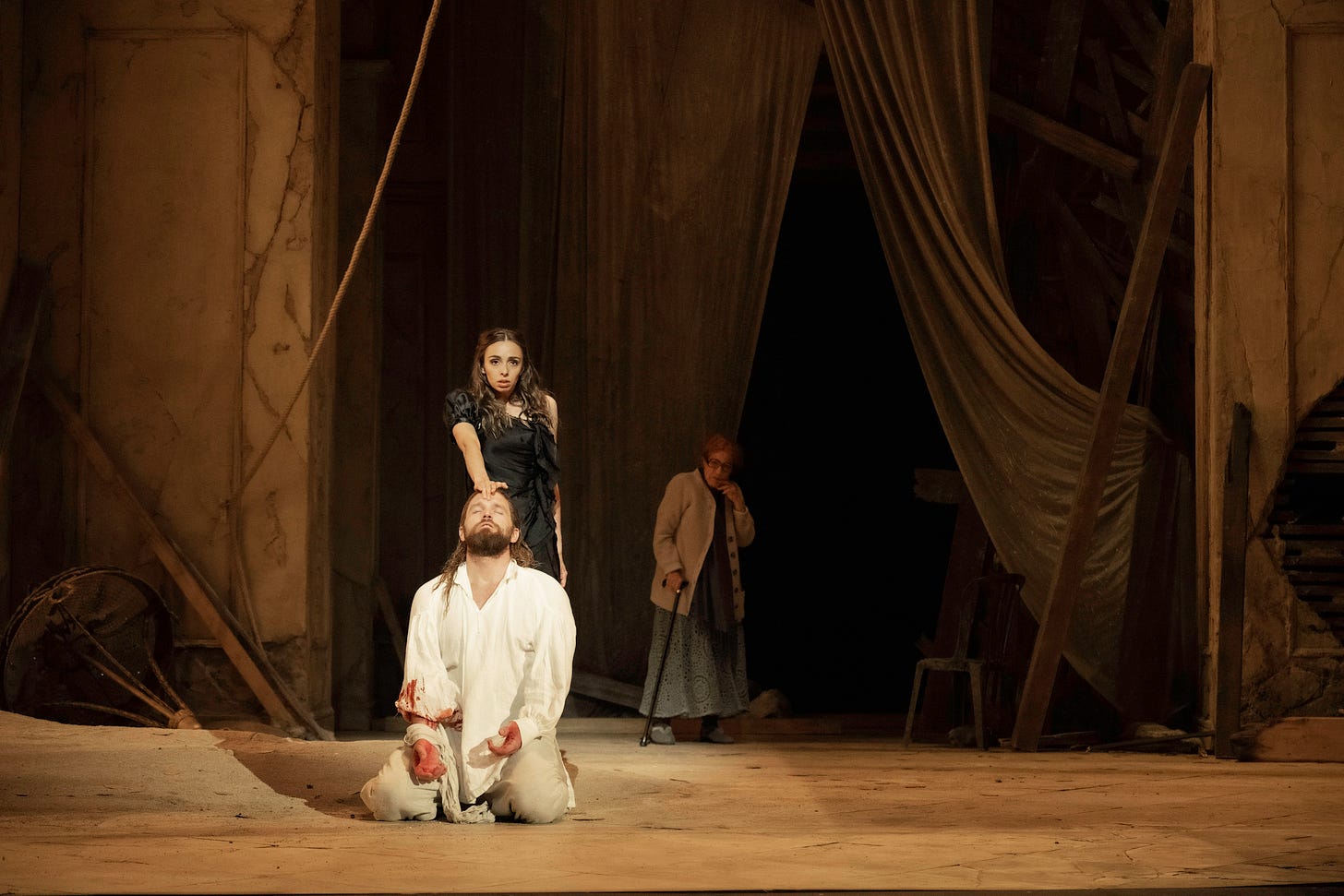Aix Peaks and Troughs
France's premiere festival offered French repertoire and provocative ideas
Jarrett Ott (Samson), Léa Désandre (Tiana) while Andréa Ferréol (Samson’s Mother) looks on Picture © Monika Rittershaus
The 2024 Aix Festival lured me back to Provence and France’s premier summer opera event for the first time since 2013, when Patrice Chéreau’s subsequently widely travelled Elektra opened with the extraordinary Evelyn Herlitzius in the title role and Waltraud Meier as Klytämnestra. This year there was no comparable ‘star attraction’, but the combination of repertoire and an intriguing line-up of directors and singer debuts piqued my G-spots.
Most of all, the opportunity to attend the stage premiere, if not the prima assoluta, of Rameau’s ‘lost’ Voltaire opera was simply irresistible to a long-time Voltairian and ever-curious Ramiste. The conductor of the project, Raphaël Pichon, is one of the composer’s most ardent champions - his baroque ensemble, Pygmalion, is named after one of Rameau’s shorter theatre-pieces - and his collaboration with Claus Guth, a leading figure of German Regietheater’s ‘sensible tendency’, seemed sure to light sparks.
Samson was ‘lost’ because Louis XV’s censors dismissed Voltaire’s text as blasphemous. Buoyed by the success of his mould-breaking debut opera Hippolyte et Aricie (1733), Rameau had embarked on a partnership with the radical philosopher after the latter had spent a spell in the Bastille following the publication of his inflammatory Lettres sur les Anglais. Voltaire’s name was political mud in 1734 when he began work on Samson, his name tarnished with accusations of anti-religious moral turpitude. When, in response to the censors’ initial rejection of Samson, Voltaire re-wrote the text, this too was rejected - “it is out of the question, messieurs Voltaire and Rameau, that this opera should see the light of day - it is unworthy of the morals of our time, and may not be performed”. And so the composer withdrew the score, cannibalising it in succeeding years for Les Indes Galantes (1735) Castor et Pollux (1737), Dardanus and Les Fêtes d’Hébé (1739), Les Surprises de l’Amour (1757), Les Paladins (1760) and even the posthumously performed Les Boréades (1764).
Keep reading with a 7-day free trial
Subscribe to Operalogue to keep reading this post and get 7 days of free access to the full post archives.




